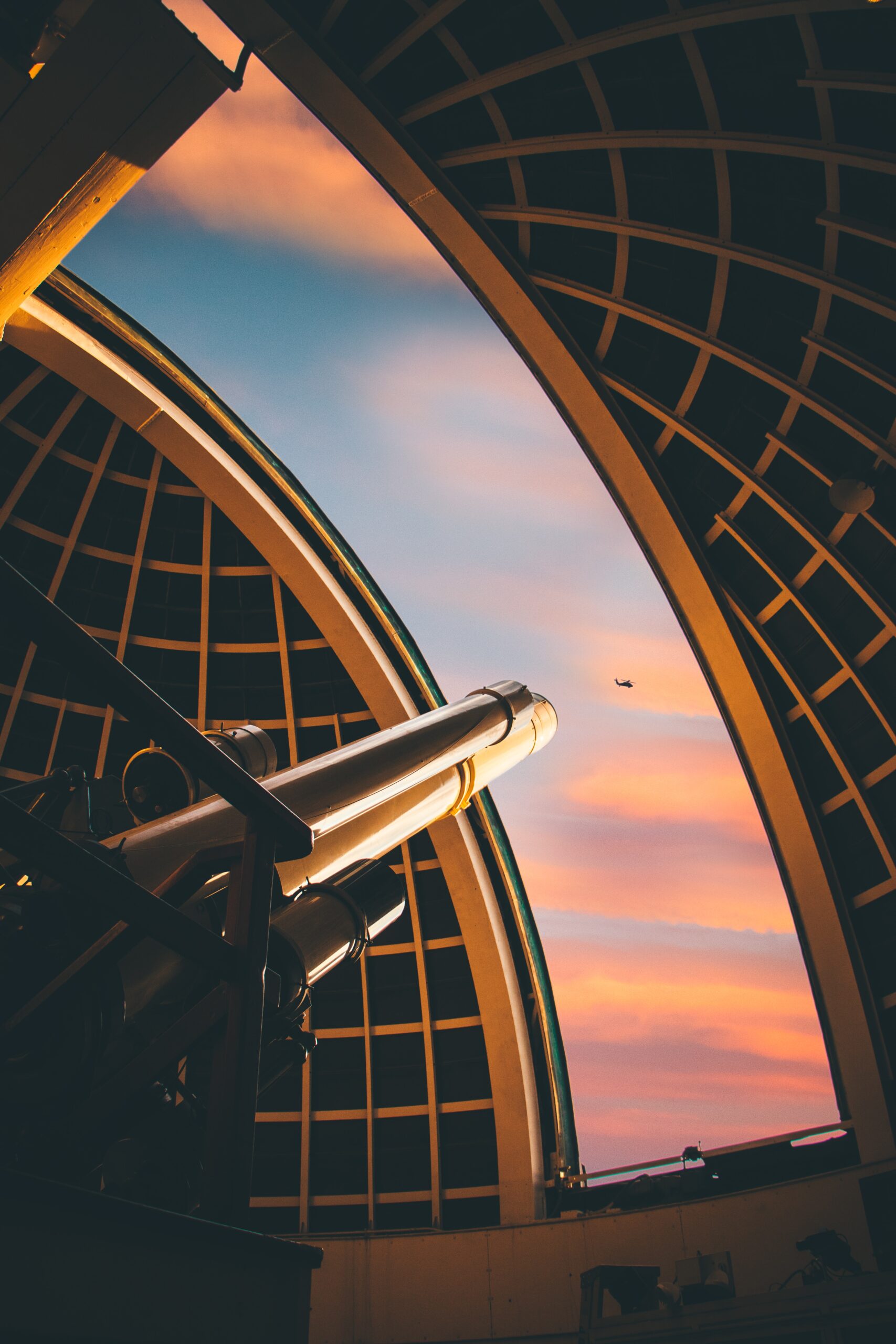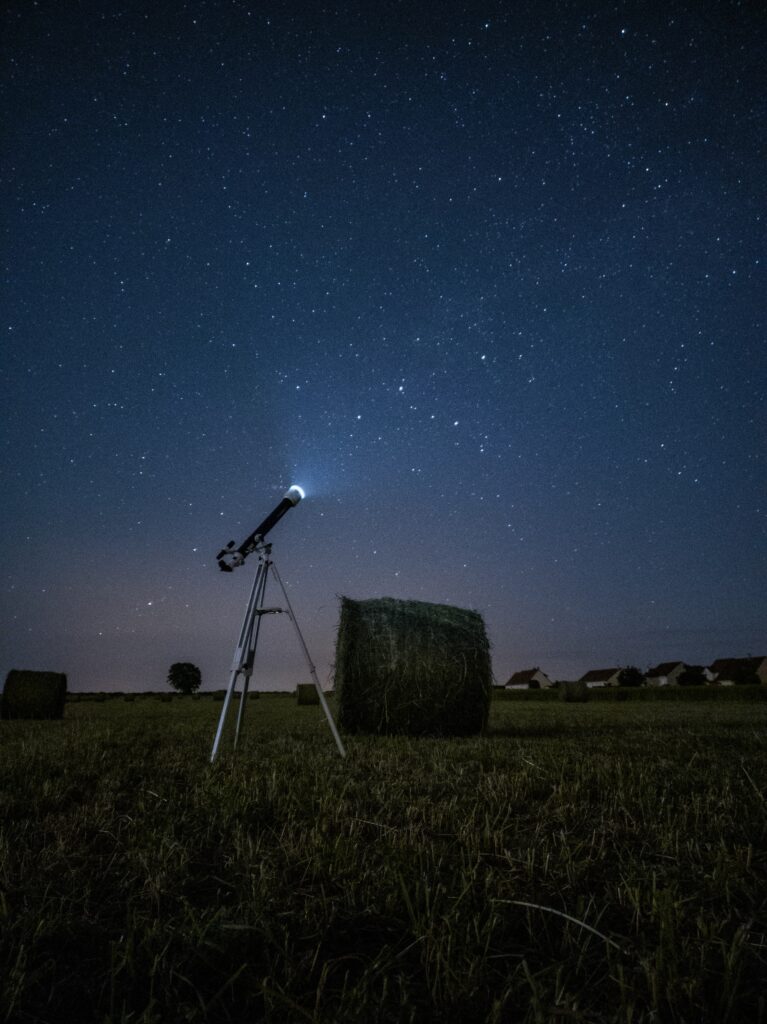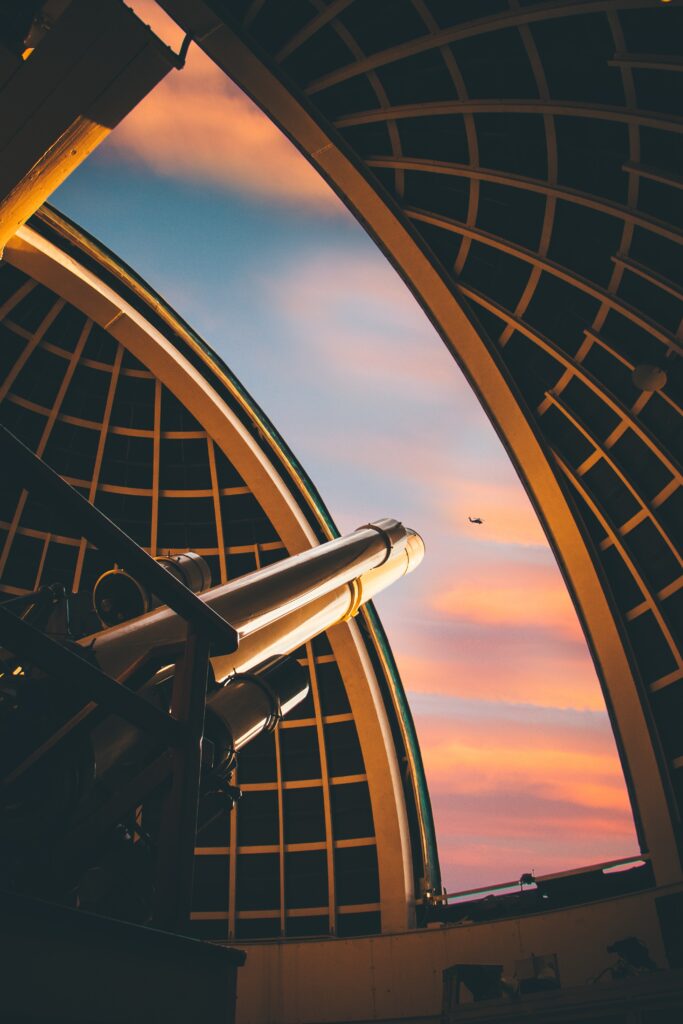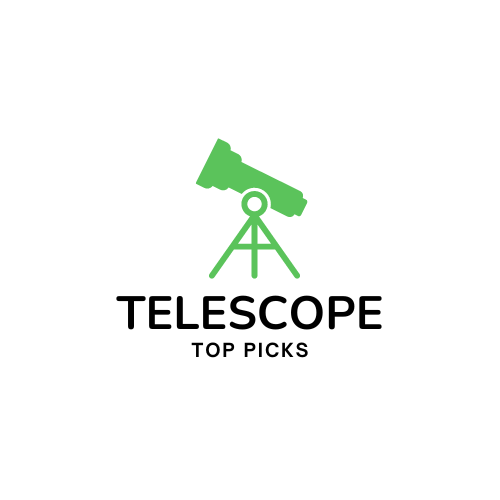
So you’ve developed an interest in stargazing and have decided to embark on an exciting journey into the world of astronomy! But now the question arises: what is the best telescope for beginners? With so many options out there, it can be overwhelming to make the right choice. In this article, we will explore the various factors to consider when selecting a telescope that suits your needs and budget, helping you take those first steps into the cosmos with the perfect instrument by your side.
Telescope types
When it comes to choosing a telescope as a beginner, it’s important to understand the different types available. Here are the three main types of telescopes you’ll come across:
Refractor telescopes
Refractor telescopes use lenses to gather and focus light, providing clear and crisp images. These telescopes are known for their durability and low maintenance requirements. They are also well-suited for terrestrial viewing along with celestial observation. Refractors are a great choice for beginners due to their ease of use and reliability.
Reflector telescopes
Reflector telescopes use mirrors to gather and reflect light, making them ideal for deep-sky observations. They generally have larger apertures compared to refractors, allowing for higher light gathering capabilities. Reflectors are often more affordable and offer a wider field of view. However, they do require occasional collimation, which is the alignment of the mirrors, making them a bit more involved to set up.
Compound telescopes
Compound telescopes, also known as catadioptric telescopes, combine elements of both refractor and reflector designs. These telescopes use a combination of lenses and mirrors to fold the optical path, resulting in a more compact and portable telescope. Compound telescopes offer a good balance between functionality, portability, and image quality. They are suitable for both celestial and terrestrial viewing, making them a versatile option for beginners.
Considerations for beginners
Before diving into the world of telescopes, beginners should consider several factors to ensure they choose the right telescope for their needs. Here are some important considerations to keep in mind:
Ease of setup
As a beginner, you’ll likely want a telescope that is easy to set up and use. Look for telescopes with straightforward and intuitive assembly instructions, minimizing the time spent on figuring out how to get started.
Portability
Consider where you plan to use your telescope. If you have limited space or prefer to take your telescope on stargazing trips, a portable option would be more suitable. Look for telescopes that are lightweight and come with a convenient carrying case.
Price range
Telescopes can vary significantly in price, so it’s essential to determine your budget beforehand. As a beginner, it’s recommended to start with a more affordable option that still offers decent quality. Remember, a high price tag doesn’t always guarantee the best viewing experience.
Aperture size
The aperture size of a telescope determines how much light it can gather. A larger aperture allows for better image resolution and the ability to observe fainter objects. Beginners should aim for a telescope with a decent aperture size (between 70mm and 90mm) to ensure a satisfactory viewing experience.
Magnification power
Contrary to popular belief, higher magnification doesn’t always equate to better views. In most cases, atmospheric conditions and optical limitations can affect the clarity of highly magnified images. It’s best to choose a telescope with a moderate magnification range and focus on aperture size for better results.
Optical quality
Optical quality plays a significant role in the performance of a telescope. Look for telescopes with high-quality glass or mirrors that minimize aberrations and ensure sharper views. Consider brands known for their optical excellence, such as Celestron, Orion, and Meade.
Included accessories
Some telescopes come with additional accessories that can enhance your viewing experience. Look for telescopes that include eyepieces, finderscopes, tripods, and other useful tools. While not essential, these accessories can be a convenient and cost-effective way to get started.
Now, let’s explore some telescope options that are highly recommended for beginners.

Recommended telescopes for beginners – Refractor
Celestron PowerSeeker 70EQ
The Celestron PowerSeeker 70EQ is a versatile and affordable refractor telescope perfect for beginners. With a 70mm aperture and a focal length of 700mm, this telescope provides a good balance between portability and light-gathering capabilities. It comes with two eyepieces and a 3x Barlow lens, allowing for various magnification options. The equatorial mount ensures smooth tracking of celestial objects, making it easier to observe without constant manual adjustments.
Orion Observer II 70mm
Another great option for beginners is the Orion Observer II 70mm refractor telescope. It features a 70mm aperture and a focal length of 700mm, providing sharp and detailed images. The lightweight design makes it highly portable, allowing for easy transportation to different observing locations. With a sturdy altazimuth mount and included accessories such as two eyepieces and a finderscope, the Observer II offers excellent value for its price.
Meade Infinity 90mm
For those looking for a slightly larger aperture, the Meade Infinity 90mm refractor telescope is a fantastic choice. With its 90mm aperture and a focal length of 600mm, this telescope offers enhanced light-gathering capabilities. The altazimuth mount ensures easy maneuverability, making it suitable for both celestial and terrestrial viewing. The included two eyepieces provide options for different magnification levels, allowing you to explore a range of targets.
Now, let’s move on to the recommended telescopes for beginners in the reflector category.
Recommended telescopes for beginners – Reflector
Celestron PowerSeeker 127EQ
The Celestron PowerSeeker 127EQ is a popular choice among beginner astronomers. With a larger 127mm aperture and a focal length of 1000mm, this reflector telescope allows for impressive views of the moon, planets, and many deep-sky objects. The German equatorial mount provides stability and precise tracking, while the included accessories like two eyepieces and a finderscope enhance the observing experience.
Orion StarBlast 4.5 Astro
The Orion StarBlast 4.5 Astro reflector telescope offers excellent value for beginners. With its 114mm aperture and a focal length of 450mm, this compact telescope provides a wide field of view, making it ideal for observing star clusters and nebulae. The tabletop mount ensures stability and ease of use, while the included accessories like two eyepieces and a red dot finder simplify object locating.
SkyWatcher Classic 200P
If you’re looking for a reflector telescope with even greater light-gathering capabilities, the SkyWatcher Classic 200P is worth considering. With its impressive 200mm aperture and focal length of 1000mm, this telescope allows for detailed views of various celestial objects, including galaxies and nebulae. The Parabolic Newtonian reflector design ensures excellent image quality, while the included accessories like two eyepieces and a 9×50 finderscope complete the package.
Now, let’s explore the recommended telescopes for beginners in the compound telescope category.

Recommended telescopes for beginners – Compound
Celestron NexStar 6SE
The Celestron NexStar 6SE is a highly versatile compound telescope suitable for beginners. With its 150mm aperture and focal length of 1500mm, this telescope provides exceptional views of both celestial and terrestrial targets. The computerized altazimuth mount with GoTo capabilities makes object locating a breeze, while the included accessories like two eyepieces and a red dot finderscope enhance the observing experience.
Orion StarSeeker IV 127mm
The Orion StarSeeker IV 127mm compound telescope is an excellent choice for beginners who want a compact yet powerful telescope. With its 127mm aperture and focal length of 1540mm, this telescope offers stunning views of the moon, planets, and deep-sky objects. The computerized GoTo mount and built-in database of over 42,000 objects make it easy to find and track various targets. The included accessories like two eyepieces and a red dot finder further enhance the observing capabilities.
Meade LX90-ACF
The Meade LX90-ACF is a high-quality compound telescope suitable for beginners who want exceptional image quality. With its 203mm aperture and a focal length of 2000mm, this telescope offers impressive views of a wide range of celestial objects. The advanced coma-free design ensures pinpoint stars across the field of view. The included accessories like two eyepieces and a red dot finder make it a complete package for beginner astronomers.
For beginners on a budget, here are some budget-friendly telescope options that still provide a great starting point.
Budget-friendly options for beginners
Celestron PowerSeeker 50AZ
The Celestron PowerSeeker 50AZ is an affordable option for beginners who want to explore the night sky on a budget. With its 50mm aperture and focal length of 600mm, this telescope is compact and easy to set up. It comes with three eyepieces and a finderscope, allowing for different magnification options. While it may have some limitations compared to larger telescopes, the PowerSeeker 50AZ still offers valuable views of the moon and certain planets.
Orion GoScope II 70mm
The Orion GoScope II 70mm is another budget-friendly option that provides excellent value for beginners. With its 70mm aperture and focal length of 400mm, this compact telescope offers good light-gathering capabilities. The tabletop mount ensures stability and ease of use, making it suitable for both kids and adults. The included accessories like two eyepieces and a red dot finder make it easy to get started with celestial observations.
SkyWatcher EvoStar 90mm
The SkyWatcher EvoStar 90mm is a well-priced telescope that delivers impressive performance for beginners. With its 90mm aperture and focal length of 660mm, this telescope provides clear and detailed views of the moon, planets, and some deep-sky objects. The equatorial mount ensures stability and precise tracking, while the included accessories like two eyepieces and a finderscope enhance the observing experience.
Now that we’ve explored telescope options for beginners, let’s delve into some telescope buying tips to help you make the right choice.

Telescope buying tips for beginners
Do your research
Before purchasing a telescope, take the time to research different brands, models, and types of telescopes. Read reviews, compare specifications, and gather as much information as possible to make an informed decision.
Consider your observing interests
Think about what type of celestial objects you’re most interested in observing. If you’re keen on planetary observation, a telescope with a larger aperture and higher magnification capabilities would be suitable. If deep-sky objects like galaxies and nebulae intrigue you, look for telescopes with a wider field of view and good light-gathering capabilities.
Check customer reviews
Customer reviews can provide valuable insights into the performance and reliability of a telescope. Look for telescopes with positive reviews, paying special attention to feedback from beginner astronomers. Consider both the pros and cons mentioned by customers to determine if the telescope meets your expectations.
Visit a local astronomy club
Local astronomy clubs often have experienced members who can provide guidance and recommendations based on their own experiences. Attending club meetings or events can help you gain insights into different telescope options and even give you the chance to test them firsthand.
Test the telescope if possible
Whenever possible, try to test the telescope before making a purchase. Visit a local telescope store or attend stargazing events where vendors may have demo telescopes available. Testing the telescope allows you to get a feel for its build quality, ease of use, and image quality.
Consider future upgrades
Keep in mind that your telescope needs may evolve as you progress in astronomy. Consider whether the telescope you’re considering has room for upgrades or accessories. This can save you money in the long run, as you can enhance the capabilities of your telescope instead of purchasing a completely new one.
Now that you have your telescope, let’s explore some essential accessories that can enhance your observing experience.
Recommended accessories for beginners
Sturdy tripod
A sturdy tripod is a must-have accessory for any telescope. Look for a tripod that provides stability and adjustability, allowing you to find the perfect viewing position. A solid tripod ensures that your telescope remains steady, minimizing vibrations and improving image quality.
Barlow lens
A Barlow lens is an optical accessory that increases magnification. It works by extending the focal length of your telescope, allowing for higher levels of magnification. This can be especially useful when observing planets or other objects where more detail is desired.
Finderscope
A finderscope is a smaller, low-magnification telescope that helps you locate objects in the night sky. It’s mounted on your main telescope and provides a wider field of view, making it easier to locate and center celestial objects.
Star charts or smartphone apps
Star charts or smartphone apps are invaluable tools for identifying and locating celestial objects. They provide maps of the night sky, helping you navigate and find specific stars, constellations, and other objects of interest. Whether you prefer a printed star chart or a digital app, having a reference guide will enhance your observing experience.
Collimation tool
Collimation is the process of aligning the mirrors in a reflector telescope. It ensures that the light path is properly focused, resulting in sharper images. A collimation tool is essential for maintaining the optical performance of your telescope. It allows you to adjust the mirrors and achieve optimal alignment.
Now that you have your telescope and accessories, it’s important to take care of your investment. Here are some maintenance tips for beginners.

Maintenance tips for beginners
Keep the telescope clean
Regularly clean the lenses or mirrors to remove any dust or debris that may affect the image quality. Use a soft brush or lens cleaning solution specifically designed for telescopes. Avoid using any abrasive materials that may scratch the optics.
Store it properly
When not in use, store your telescope in a safe and dry place. Use a protective case or cover to prevent dust accumulation and potential damage. If storing the telescope for an extended period, consider removing the batteries to avoid any leakage.
Regularly check and adjust optics
Occasionally check the collimation of your telescope, especially if it’s a reflector. Misalignment can occur over time, affecting the clarity of your images. Use a collimation tool to make any necessary adjustments and ensure optimal performance.
Avoid direct sunlight
Never leave your telescope in direct sunlight, as it can cause damage to the optics and other components. The intense heat can also lead to warping or misalignment. Always store your telescope in a shaded area when not in use.
Protect the telescope from extreme temperatures
Avoid exposing your telescope to extreme temperatures, both hot and cold. Sudden temperature changes can lead to condensation inside the optics and affect their performance. Allow the telescope to reach ambient temperature before using it if you’ve moved it from an extreme environment.
In conclusion, choosing the right telescope as a beginner can be a daunting task, but considering the ease of setup, portability, price range, aperture size, magnification power, optical quality, and included accessories can help narrow down your options. For beginners, refractor telescopes like the Celestron PowerSeeker 70EQ, reflector telescopes like the Celestron PowerSeeker 127EQ, and compound telescopes like the Celestron NexStar 6SE are highly recommended.
If you’re on a budget, options like the Celestron PowerSeeker 50AZ, Orion GoScope II 70mm, and SkyWatcher EvoStar 90mm offer great value for beginners. Remember to do your research, consider your observing interests, check customer reviews, and even visit a local astronomy club before making your purchase. And once you have your telescope, don’t forget to invest in essential accessories like a sturdy tripod, Barlow lens, finderscope, star charts or smartphone apps, and a collimation tool. With proper maintenance and care, your telescope will provide countless hours of astronomical exploration. Happy stargazing!








